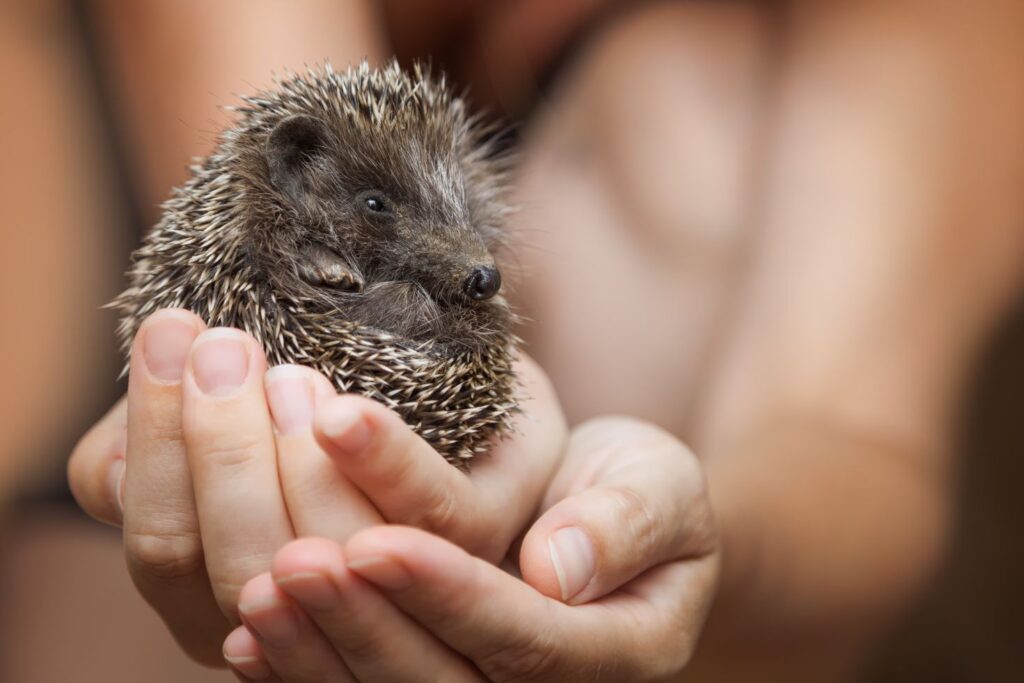Table of Contents
Hedgehogs are some of the cutest animals to have around. That explains why these adorable creatures are increasingly becoming a common sight in many homes around the world.
But if you’ve been considering adopting a hedgehog as a pet, one of the questions that might have boggled your mind is regarding the animals’ life expectancy.
So, just how long do hedgehogs live?
This article shall expound on that frequently asked pet hedgehog question.
What Is The Average Lifespan Of A Hedgehog?
Most woodland hedgehogs live between 2 and 5 years. That’s remarkably long considering the animal’s relatively small size. But it’s probably not long enough bearing in mind that some equally-sized house pets can have twice the same life expectancy.
Fortunately, the 2-5 age range isn’t cast in stone. Numerous factors influence the actual duration a hedgehog can live in the wild or in captivity.
What Is The Life Expectancy Of A Wild Hedgehog?
Wild hedgehogs can live up to five years. However, most have a life expectancy of 2 – 3 years.
Life in the wilderness presents myriads of challenges that make it difficult for a wild hedgehog to live long enough. Many of these animals die even before they’re old enough to know what hit them.
What Is The Life Expectancy Of A Pet Hedgehog?
A pet hedgehog will typically live between four and seven years. However, some have lived for up to ten years. That’s more than twice as long as their wild cousins, and understandably so.
A pet hedgehog has fewer challenges to worry about. They face minimal risks of predation or dangerous human encounters. They’re also less likely to die from disease outbreaks.
Besides, pet hedgehogs enjoy an abundance of quality food, toys, and many other aspects that can improve their overall quality of life.
Hedgehog Care and Maintenance Tips for Enhanced Lifespan
Adding a hedgehog to your household can be such an exciting experience. But getting the animal to live longer requires some inputs on your part.
Below are effective tips that might help increase your hedgehog’s life expectancy;
1. Choose the Right Breed
Hedgehogs, like most pets, come in many breeds. The most popular hedgehog breed kept as pets is the African pygmy hedgehog (Atelerix albiventris). This breed is preferable for its ease of maintenance and disease resistance compared to many hedgehog breeds.
Given optimal care, the African pigmy hedgehog can live between 4 and 6 years.
Choosing the right hedgehog breed also depends on where you get the animal from.
It’s always prudent to buy a hedgehog from a licensed breeder as opposed to adopting one from a shelter home. Getting a hedgehog from a reputable breeding facility allows you to predict the animal’s physical and behavioral characteristics based on its genetic profile.
2. Choose a Proper Cage
Hedgehogs require a relatively large cage for their size. That’s because they need ample space to run around and play. The conventional wisdom is to go for a cage that’s at least five times the size of a mature hedgehog.
Ensure the cage is impenetrable by other pets like cats and dogs. This offers a sense of security for your otherwise vulnerable hedgehog.
It’s also best to choose a cage with a solid as opposed to wired floor. Wired cage floors can get a hedgehog’s feet entangled, potentially causing injuries.
Experts further recommend buying a cage with levels and compartments where the animal can climb while playing or hide when he feels threatened.
Most importantly, ensure your hedgehog’s cage has access to food and clean water, then place it in a room with an average temperature of 72 degrees Fahrenheit.
3. Insist On Proper Nutrition
Hedgehogs are prone to weight-related medical conditions like obesity and diabetes. Therefore, these animals require more protein in their diets and only a small amount of fat for energy production. They do not need carbohydrates at all, except when it’s fed to them in the form of dietary fiber to relieve digestive issues.
Wild hedgehogs mostly feed on insects and small mammals. Pet hedgehogs will enjoy these same food sources.
However, you can also supplement a pet hedgehog’s diet with healthy fruits and vegetables. Just remember to talk to your veterinarian first before introducing the animal to plant products.
4. Beware Of Nibbling
Nibbling is where hedgehogs are found with open sores on their skin, usually alongside patches of short or missing spines. The phenomenon is common among wild hedgehogs coming out of hibernation and is attributed to pecking by magpies or nibbling by rats and mice.
However, nibbling may also affect domestic hedgehogs who share the same living space with rodents. If untreated, the open wounds might cause potentially fatal infections.
You can protect your pet hedgehogs from nibbling by keeping them in separate cages from rats, mice, and other rodents.
5. Take Your Hedgehog for Regular Medical Checkups
We cannot overemphasize the importance of regular medical checkups. These examinations can help uncover underlying diseases before they degenerate into life-threatening levels.
They can also reveal if your hedgehog has been receiving proper grooming and dental care.
Conclusion
The life expectancy of a pet hedgehog is between 4 and 7 years. However, it’s reassuring to know that there’s a lot you can do to increase your hedgehog’s lifespan and overall quality of life.
As a parting shot, remember to discuss with your immediate family before bringing a hedgehog home. Also, train your kids on proper hedgehog handling to prevent undue injuries from these animals’ spines.




